An Evening With Ruben Quesada
Visiting poet Ruben Quesada was the star of our third reading, a solo act. He read three poems from his upcoming and still-untitled collection, though they aren’t entirely poems, per se: they are disparate ideas split up into numbered sections that convey themes of religion, desire, and surviving the AIDS crisis of the 1980s.
When the collection goes to print next year, these poems will be arranged into squares: devoid of punctuation, interspersed by translations of Luis Cernuda. Quesada has old-time religion on his mind, both in theme and arrangement: big stone tablets like what Moses carried down the mountain. He was inspired by Mayan stones at the Art Institute of Chicago, where he once gave a reading. Covered in hieroglyphics, he said they reminded him of the “contemporary use of images to convey ideas: emojis,” and added, “I began to think of my use of imagery in a similar fashion.” His editors welcomed the idea. “It’s fun to play with, so I stuck with that.”
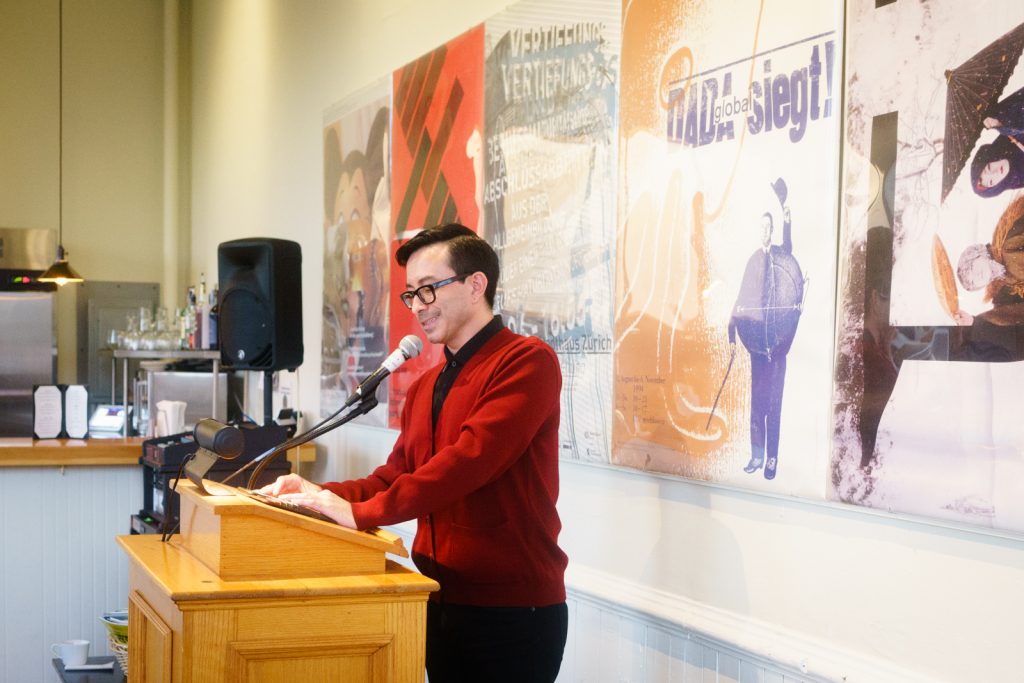
“Communion” shared the aftermath of a poetry reading in San Francisco, and a chance encounter with a palm reader. He drops the word “petrichor” in Part II, a beloved word among literary nerds like us. Part III contrasts the AIDS movement against the death of a classmate’s parent: “There was no funeral. He simply turned to ash.” In Part IV, Quesada says: “Take me away from the worthless ghosts of this daily life.”
“Already you were nitrogen, sulphuric, even gold,” says Quesada, in his next poem, “Confession”: “Summer in silver patches of rain.”
He read from Cernuda, two poems titled “Desire” and “Winter Song.” Then, he finished with a poem called “Clemency,” about growing up queer and Latino in Southern California.
“Imagine the most beautiful garden of flowers and weeds, coexisting in the same soil,” said student Cammie Finch, who introduced Quesada. “This is how I picture Ruben’s poems: juxtapositions of the ugly and tender, the simple and the supernatural, the horrifically broken and the immaculate.
“Each sound is thoroughly considered, each sound is placed gently and purposefully into place. Each sound begs for the wind of a voice to bring the poems alive, which we are so fortunate to hear read aloud by the poet himself in just a few moments.
“And let’s face it, he wins Best Dressed Award, hands down.”
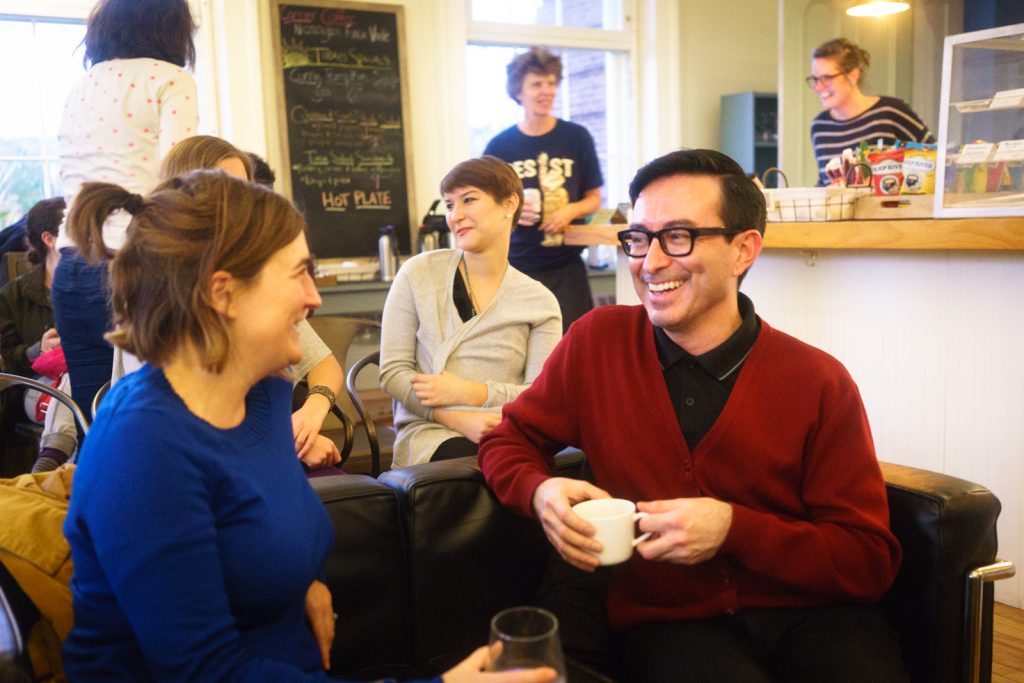
After his reading, Quesada answered questions from the audience, who responded with such grating queries as: did you hone your reading voice? (Answer: Quesada has a “poet voice” that reflects his performative aspect.)
Should a poem be titled? (Answer: “Titles are hard.” Without a title, “the focus is simply on the content.”)
Who are some poets and their work that you love? (Answer: David Campos, Furious Dusk; Jenny Johnson, In Full Velvet; Rosebud Ben-Oni, currently in Hunger Mountain.)
And, what do you do for fun? (Answer: watch movies with good, interesting soundtracks like Arrival, with a score by Icelandic composer Jóhann Jóhannsson; A Ghost Story, by Daniel Hart.) And music helps a lot for meditation, to get into a space. If Quesada is creating: something repetitive. If he revises: he balances the emotionally challenging work with uplifting music, preferably Spanish.

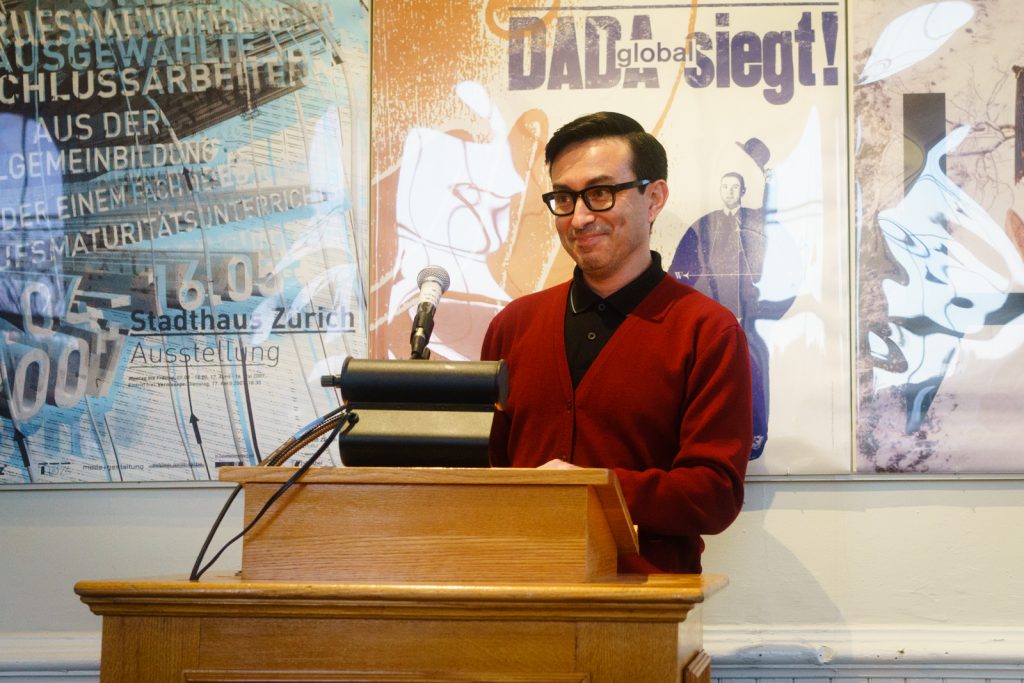

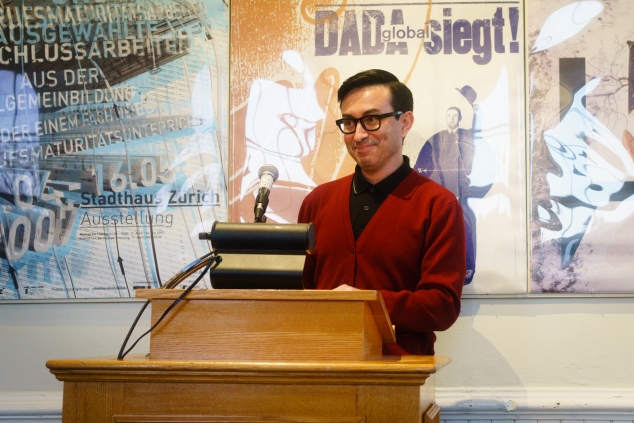
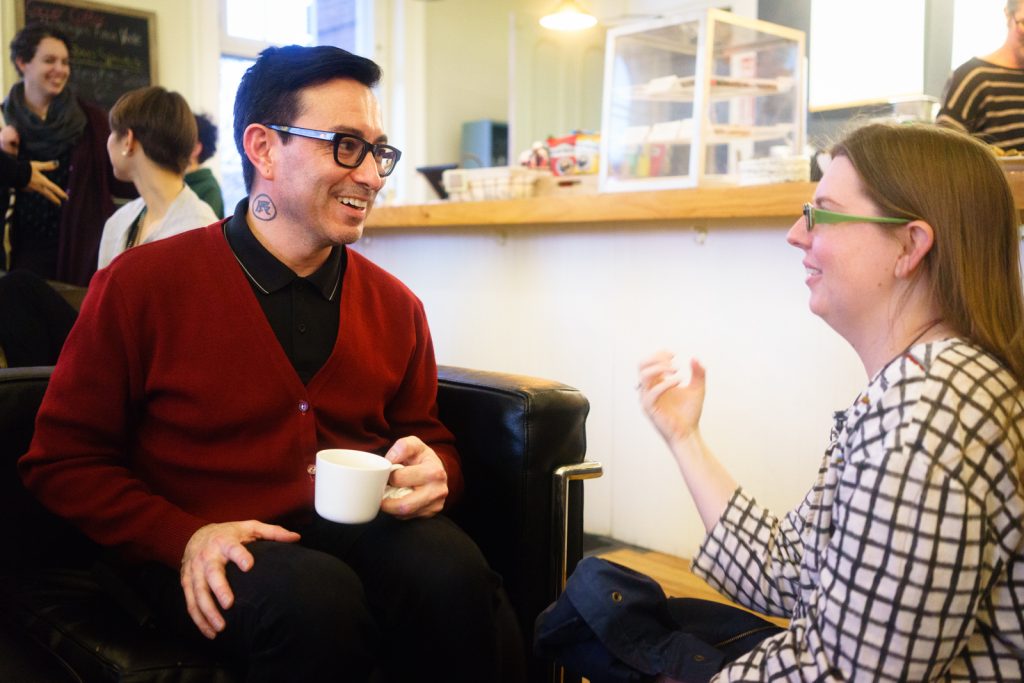


Leave a Reply
Want to join the discussion?Feel free to contribute!